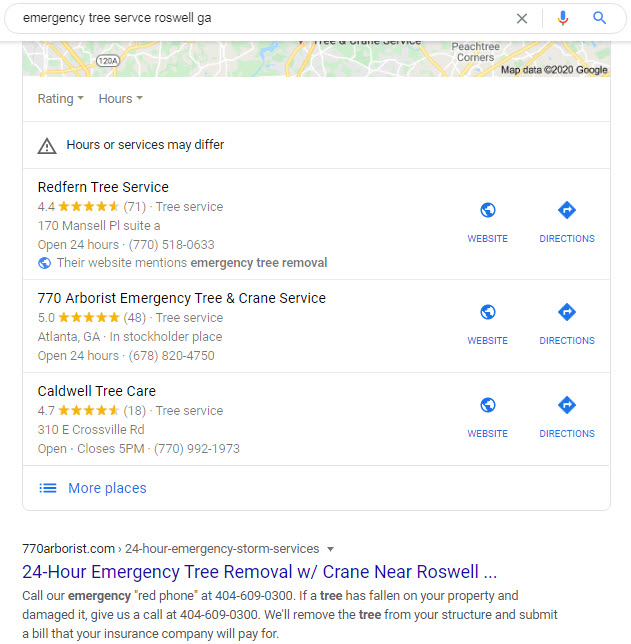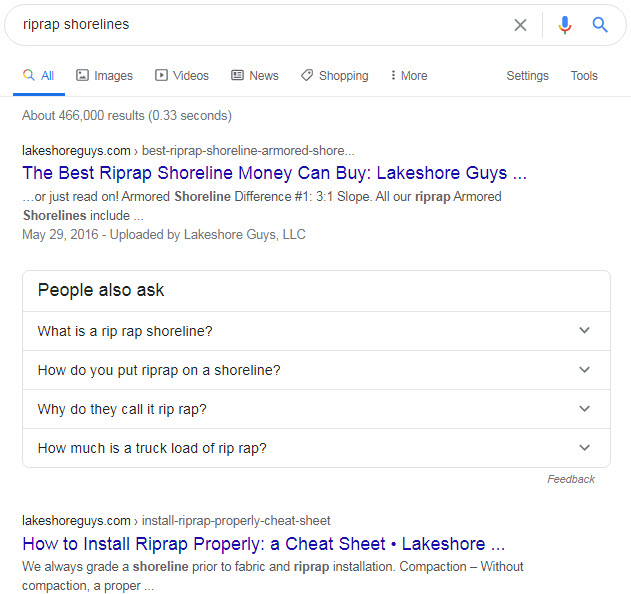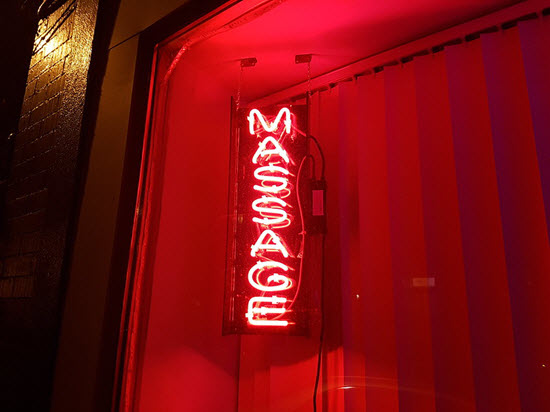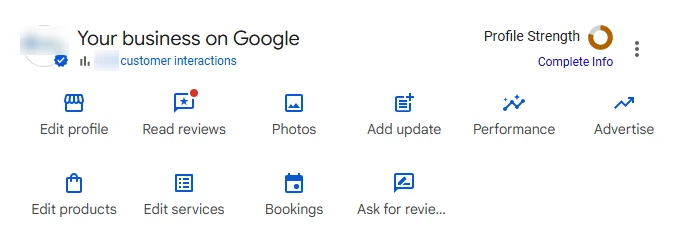
Now you’re looking at your lease through the local SEO lens. A combination of the pandemic, the lockdown(s), the quasi-reopening, and other changes has made you want to save money where you can, or work from home indefinitely, or move your HQ. The basic concern is, “Will I destroy my local rankings if I rent somewhere else or stop renting altogether?”
Your more-specific questions might include:
- Should you stay in your current building?
- If you stay, how long should you stay?
- If you move, which address (old or new) should you show online?
- Should you stop showing your address online?
- How important is your exact address, in the grand scheme of local SEO?
The answer to those questions and others in a similar bucket is: “it depends.” It depends on a lot of factors you need to weigh.
In recent months I’ve helped several clients transition to work-from-home, develop or reopen with virtual/online/not-in-person services, or move to a new address. (I also did some of that pre-COVID.) You might have similar goals. In that case, I’m here to point out all the ways an address change can blow up in your face, so you can decide what the least-bad course of action is.
Below are some factors I suggest you include in your head math as you decide whether and when to drop your lease (or make a similar big change). The more of these you can answer “yes” to, the better.
- Are you OK with the risk-reward balance of using an old address for your Google My Business page – AKA “hermit crab SEO”? If not, then you probably have little choice but to keep paying rent a while longer. If so, it might be at least a short-term way for you to cut your lease but still stick around on the map for at least a while longer. The main risks of hermit crab SEO are (1) your Google My Business is somewhat more likely to be removed from the map at some point, and (2) it will be harder or impossible to re-verify page at that address again, if you ever need to. By the way, a tool like Persuaded.io can tell competitors whether the USPS considers your address occupied, which may help those competitors send in a Google Maps edit that sticks. Read my post on the pros and cons, if you haven’t already.
- Do you get customers / clients / patients from a variety of cities or towns or neighborhoods, rather than only from the one you’re in? You’re taking a real gamble if most or all of your business comes from one small spot. But if you get people from a variety of places – and if you suspect they found you online and aren’t all just word-of-mouth referrals – then your visibility is probably diversified enough. Your rankings go down here and go up there, but you’re still OK. Not all your eggs are in one basket.
- Do you rank for any important search terms outside of your immediate, hyperlocal area? In other words, how location-sensitive are the Google Maps rankings you care about? If you only rank for your important search terms within a very small patch of land (like in a few neighborhoods in your city, or in one small town), then any change of address will probably mess you up. How do you find out how location-sensitive your rankings are? I’d look in a combination of the AdWords Ad Preview & Diagnosis Tool, in a local rank-checker that uses a proxy, in Google My Business “insights,” and maybe in Search Console (under “Performance” -> “Queries”). No method is perfect, but if you piece together what you see in various places you should get the picture.
- Do you have solid organic rankings in addition to solid Maps rankings? If not, removing or changing your address will affect your visibility on the map – probably for the worse. But if you do have that solid baseline of organic rankings, removing your address from Google My Business or changing your address is less likely to cut into your overall visibility. How can you find out the breakdown of your Maps vs. organic visibility? Look in the places I mentioned in point #3 (above), and maybe at a rank tracker.

- Do you have a plan ramp up your organic visibility fast? Easier said than done, I know. But if anything happens to your Google Maps rankings, the organic results will probably be your main or only source of “free” visibility. (Most of your visibility on the map depends on your organic SEO strength anyway.) Your main alternatives are (1) wait for a miracle, (2) spam the map and hope it doesn’t backfire, and (3) pay for ads as your only source of sun rays. Not a great scenario. How can you ramp up your organic visibility fast? Well, short of spamming or earning a ton of good links, I’d suggest (a) getting at least a few solid and relevant links, (b) creating a separate page on every specific offering you’ve got (so as to get more “one-box” visibility), (c) working your homepage WAY more, (d) going after “near me” terms, and (e) maybe creating the kind of “areas served” page that would bring a grin to my mug. In general, my suggestion is to create in-depth pages (not blog posts) on very specific topics that people both nearby and farther-away research at some point in the buying process.

- Do you already have “virtual” or “online-only” customers, clients, or patients? Before you might make your business less bricks-and-mortar, you need to know whether the people who pay you are fine with a service that’s less bricks-and-mortar. Not everyone will stay on that road with you, but some will need to.
- Does your “virtual” or “online-only” clientele include some people you started working with after COVID and the lockdown hit? For one thing, you need to establish that you can get new customers / clients / patients when it’s clear to them from the start that your service (at least for now) is done remotely. Also, as I mentioned, it’s great if some or most of your tribe has made the transition with you, but those people already had in-person connection to you. That’s a kind of glue. Can customers get attached to you even if they don’t start off with the glue? How long do they stay attached to you before you start looking like just a floating head with a voice and an invoice? Good questions. The short answer is, “it depends.” Most of my longer answer you can piece together between this post, this one, and this one.
- Will your service area stay pretty much the same? If so, then you may not need to wait until you’ve built up organic visibility in more of your service area. If not, you’ll probably want to fill in some gaps before you drop your lease. Your local SEO effort needs to go beyond the map.
- Do you have a solid pile of non-Google reviews? Put another way: even if people never see your GMB page and its Google reviews, will they still see a rock-solid reputation and know what to expect of you? Diversify where you get reviews, whether or not you end up cutting your lease. By the way, you’ll probably find that’s not too tough to do. With the exception of Yelp, Google is a harder place to get reviews on that pretty much every other review site.
- Do you have a good way to explain PUBLICLY what your location is? If you want or need to specify it on your site, or explain it to Google My Business “support,” or clarify something in a response to an online review, you don’t want your place of business (or lack thereof) to seem dodgy.

- If you use AdWords and run location extensions, do your ads without location extensions do well? If your CTRs or other important metrics are only good when your Google My Business page gets dragged along into your ad, and then you make a big change to that Google My Business page, your Google Ads visibility may become collateral damage.
- Are you fine with your old address (or your home address) showing up on certain local listings? Your address won’t show up on all listings (especially if you take pains to conceal it), but it will appear on some sites. Probably shouldn’t be that way, but it is. If the address you’re leaving or the one you’re switching to is absolutely top-secret, then you’ll need to reconsider.
- Is your current place itself not a big selling point for most of your customers? If you don’t know already, see if you can glean any insights from your customers’ reviews of you. Maybe your possible new location or non-location is better for you and not a deal-breaker for your clientele, but how many people would miss something irreplaceable about the old location?
—
Lifting anchor from your lease may or may not be voluntary. Whether it’s a change you have to make, or want to make, or that you figure you might as well make because so many other things are in flux anyway, it’s worth engineering in your favor as much as you can. Knowing the trade-offs and blind spots is the best way to do that.
What are you considering doing with your lease or address?
Any factors you’re weighing that I did not mention?
Any unique twists in your situation?



Recent Comments